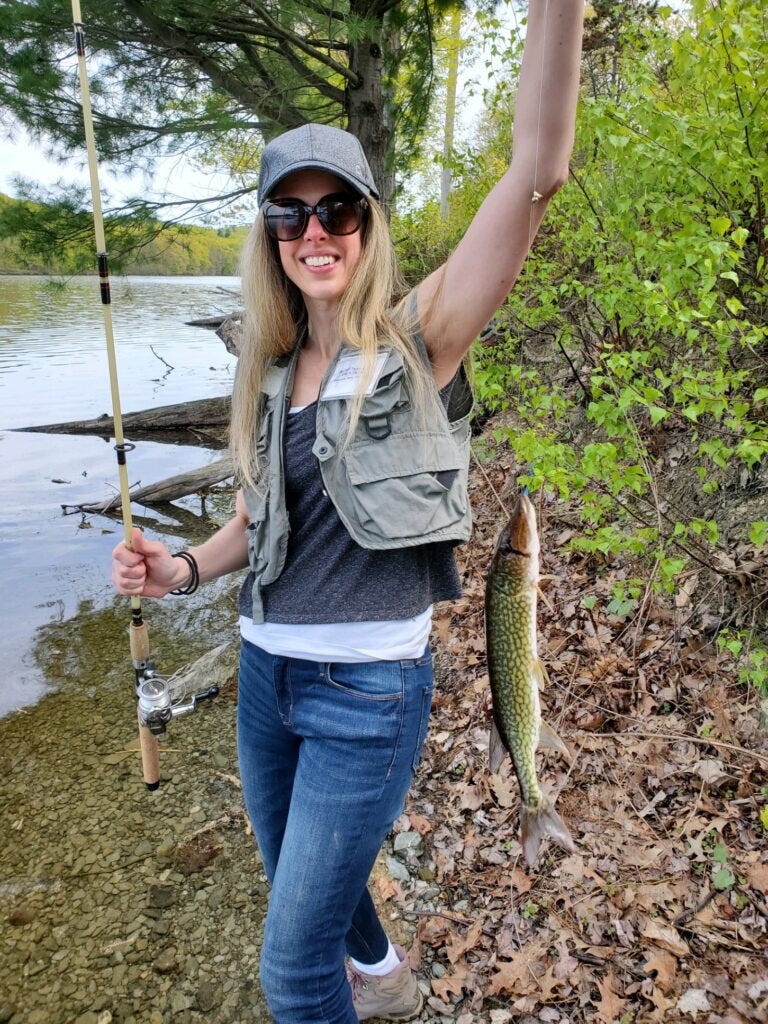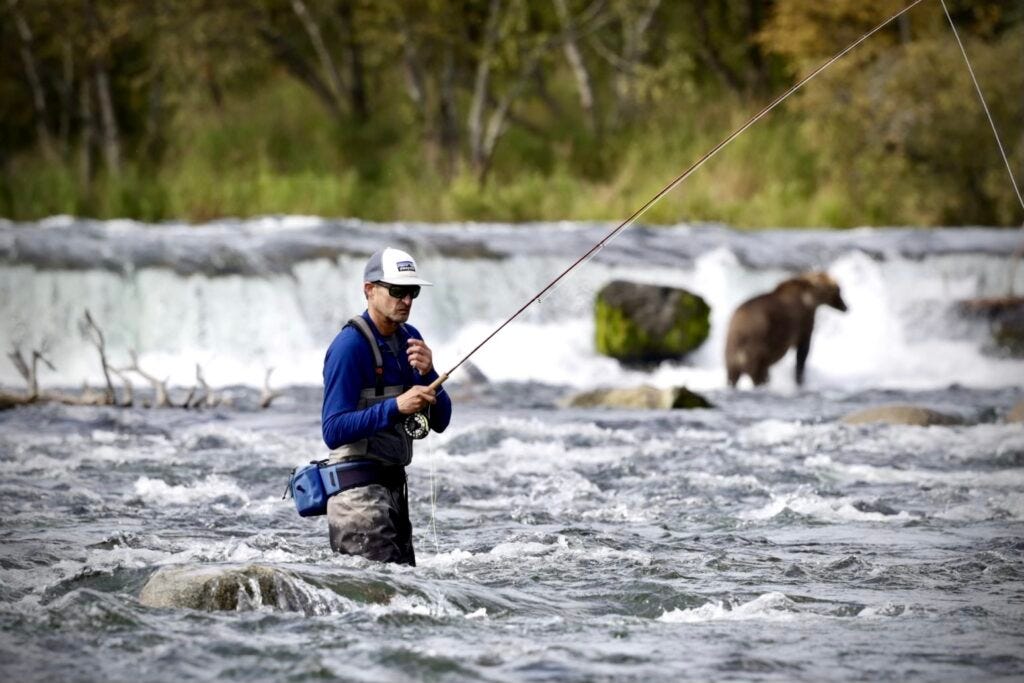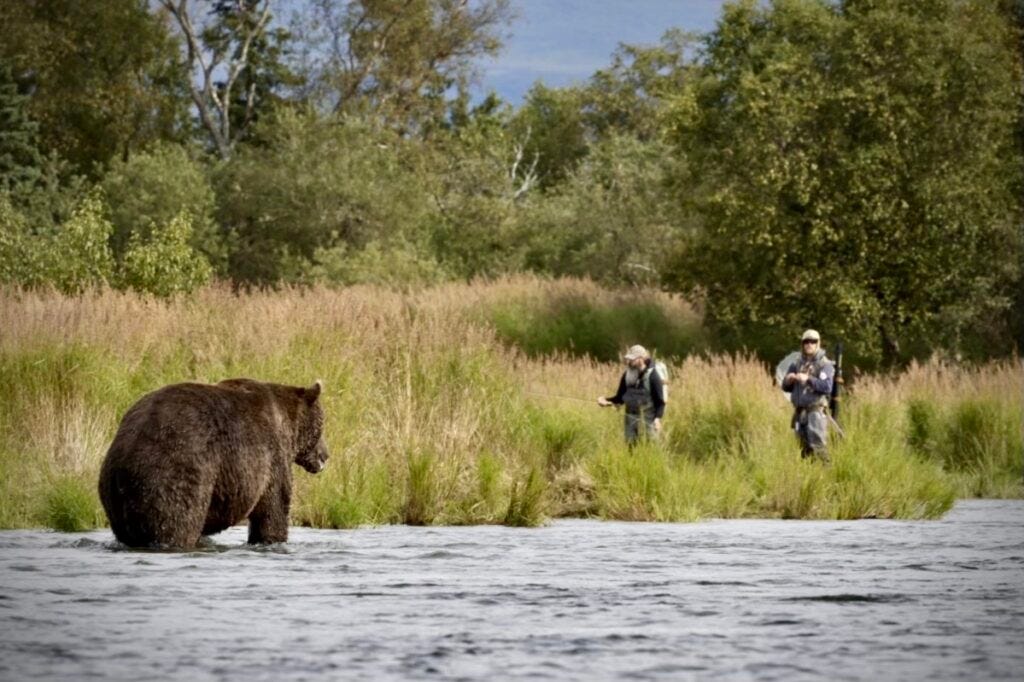You're Getting Bad Advice - Plus Fish Pics
Working a lot when you're young isn't going to kill you and it's a great investment.
This is not strictly speaking an education or education policy post - but it certainly implicates at least parts of our sector. The non-profit sector in particular. And it's something that comes up a lot in conversations with colleagues and friends so sharing because it might be helpful for someone. If nothing else, weekend reading. Or scroll through to the fish.
If you're say 22-30, maybe even 35, you might be getting what I'd consider really bad career advice, albeit from well intentioned people.
I am surprised how often I meet with young people who have been told to focus on their work-life balance, sustainability, and personal growth journeys in their 20s more than their work. In my view, if you want to do professional work, this is not great advice.
Let's first be clear on one thing, this is not some macho bullshit suck it up, sleep when you're dead, everything that doesn't kill you makes you stronger, etc...etc...post. Take care of yourself. If you are having mental health challenges you should attend to those first and foremost, they will at least hold you back and lower your quality of life or perhaps much worse. If you are miserable you should do something else. If you are having trouble with your relationship with alcohol or drugs, get help and get on top of that right now. What's quirky and funny in your 20s will be ruinous in your 40s or 50s. Make time to stay in shape.
What I'm talking about here is if you like your work generally, have goals you want to achieve and things you want to do, and your life is more or less on track broadly speaking.
In that case...let's talk about your 20s and early 30s. First, physically and mentally you're not ever going to be more at the top of your game. You're strong and you can push through stuff that you won't when you're older. And your mind is still a sponge. You'll know more when you're older, and that's pleasing and useful in its way, but your pace of learning is better when you're younger. That's why at this age rather than worrying about your employer's views on work life balance or going on about radical self-care, you should be investing in yourself - by among other things working a lot if you have professional goals and learning everything you can. (If you don't have professional goals that's great, too, there is nothing magic about professional work and a lot more to life).
But I want to be clear: it's impossible to overemphasize learning. You should take every opportunity to learn. Attend things, mix with people who are not like you, read everything you can get your hands on. I'm always impressed when in an informational interview someone doesn't ask me what book they should read but instead what 5 or 10 they should. And then they follow up to share what they learned. That's badass. (Even more when they have good ones to suggest.) Seek out more experienced people and situations where you can watch them operate and learn from them. This is invaluable. Assume you're going to be wrong half the time but move forward anyway - that's good life advice at any age.
Travel. As your commitments grow your appetite for time on the road will probably lessen. So take advantage of the opportunity to stay an extra night on trips or come in early, visit a school or two, spend time with someone, hang out somewhere different. Once my kids came along I was a lot less excited to miss mornings with them, even just a little time before school. I don't have the status with the airlines I used to and I don't miss that - but I'm glad I once did.
I broke in to the policy sector like most others, informational interviews, seeking out opportunities. People often say to me now, it seems like you know everyone. I don't, but I know a lot of people because I made a point of getting to know them, learning from them, and I try to pay that forward. It's a solid investment to make when you're young because it force multiplies, people know other people. It's how you can figure out who knows what that you need to know. And you will never stop needing that.
Do an honest inventory, are most of your contacts in one bucket or another? Seek out people with informed and divergent views on the big policy and practice questions our field wrestles with. Intergenerational learning is key so find opportunities for that.
Do this with your friends, too. A diverse group of friends - who don't all work in your field - will make you a lot better at what you do. It will also help with perspective. Friends in say medicine or the military will give you important perspective on what a bad day at work really is. Friends in the trades will remind you of the difference between working "hard" and just working long. Real friends don't care if you're up or down at work, they care about you. Seek them out.
In my 20s I was at a table at a dinner and listened to Paul Hill and Jane Hannaway discuss a question. The comfort and fluidity with serious analysis, multiple things are true at once, who was being dishonest about the evidence, the lack of credulity, was obvious and I realized I wanted to be able to work more like that in a sector where a lot of BS flies around all the time. Grad school, and mentoring - including generous mentoring by Paul and Jane, including various collaborative projects, publications, and a book project - helped me close that gap.
But it was a lot of work and didn't lend itself at points to anything like optimal "work life balance." But that's ok. I'm at a point now, married, kids, other responsibilities, where sustainability and balance matters more.
But when you're young, perhaps the most radical act of self care you can take is to invest in yourself for the future. You can handle it then better than ever. The people telling you otherwise, even if they're well intentioned, aren't putting your best interests first. They're often focused on aesthetics or theater. You should be focused on you.
It's Friday so here's some Fish Porn. Education people with fish.
Here's Christi Shingara, pride of Pennsylvania, with a nice pickerel, which is a cool target species. Christi is on the Bellwether team.
And here's Karim Ani, founder of Citizen Math, in Alaska recently. And yes that's what you think it is behind him:
Bonus fat bear porn:
Wait, what, you wonder? If you're new around here, welcome. Here's an archive of hundreds of pictures of various education types with fish (mostly large predator-free). Send me yours!






